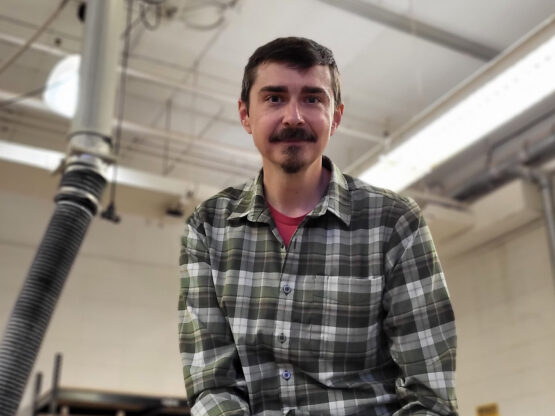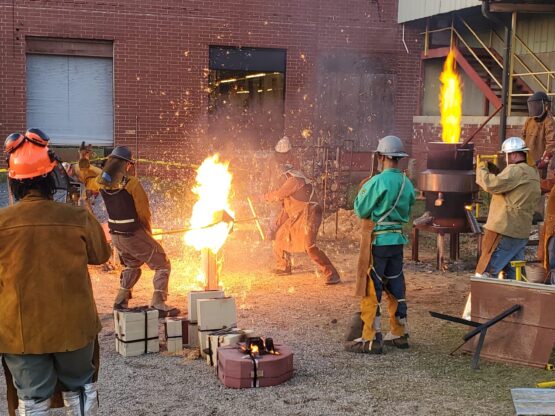Waylon Bigsby is a studio artist and arts educator based in Greenville, South Carolina. He earned a BFA at East Carolina University and an MFA at the University of Kentucky. Waylon has served on the steering committee for the National Conference on Contemporary Cast Iron Art, is a South Carolina representative with the Tri State Sculptor’s Association, and teaches sculpture at Furman University.
Artist Statement:
In the late 19th century, the industrial revolution brought about a new
concept in manufacturing - the division of labor. The tradesman, whose work
once encompassed the entire rite of creating an object, was quickly reduced to a general laborer, whose work was specialized to perform a single operation in an assembly line work environment.
The “modern laborer” after this change is left with no creative outlet, no product to redefine, and no new solution to possibly offer. Ingenuity now comes from paper on a desk, not from the workshop floor. What once were creative and fulfilling trades have become work with little need for a wide range of skill and material knowledge.
Occasionally, however, these modern workers could use scraps and remnants from jobs on the floor to create their own inventions; devices and apparatuses to make the jobs easier, the floor less cluttered, their own productivity rate increased.
These creations are the only connection that the general laborer has with the tradespeople of our history. They become shrines or altars to the roots of trade, tabernacles of labor, objects created by those who no longer create objects.
Having been both artisan and modern laborer through my past, I understand the value of this connection. I have observed artists who cannot make, and tradespeople who cannot conceive an entire project. It is painfully clear that convenience and technology can allow one to exist without learning and existing within the entirety of the processes in which they work.
It is for this reason that I have used scraps and remnants, along with processes both complete and in hiatus, to create my own tabernacles. In creating them I am celebrating a combination of material, process, and my own abilities; this combination provides me with the fulfillment and creative outlet that I need as an artist.
I believe that it is ever important in our technologically escalating culture that we - be we artisans or not - remain connected with our past through greater understanding, appreciation, and knowledge of materials and processes.

